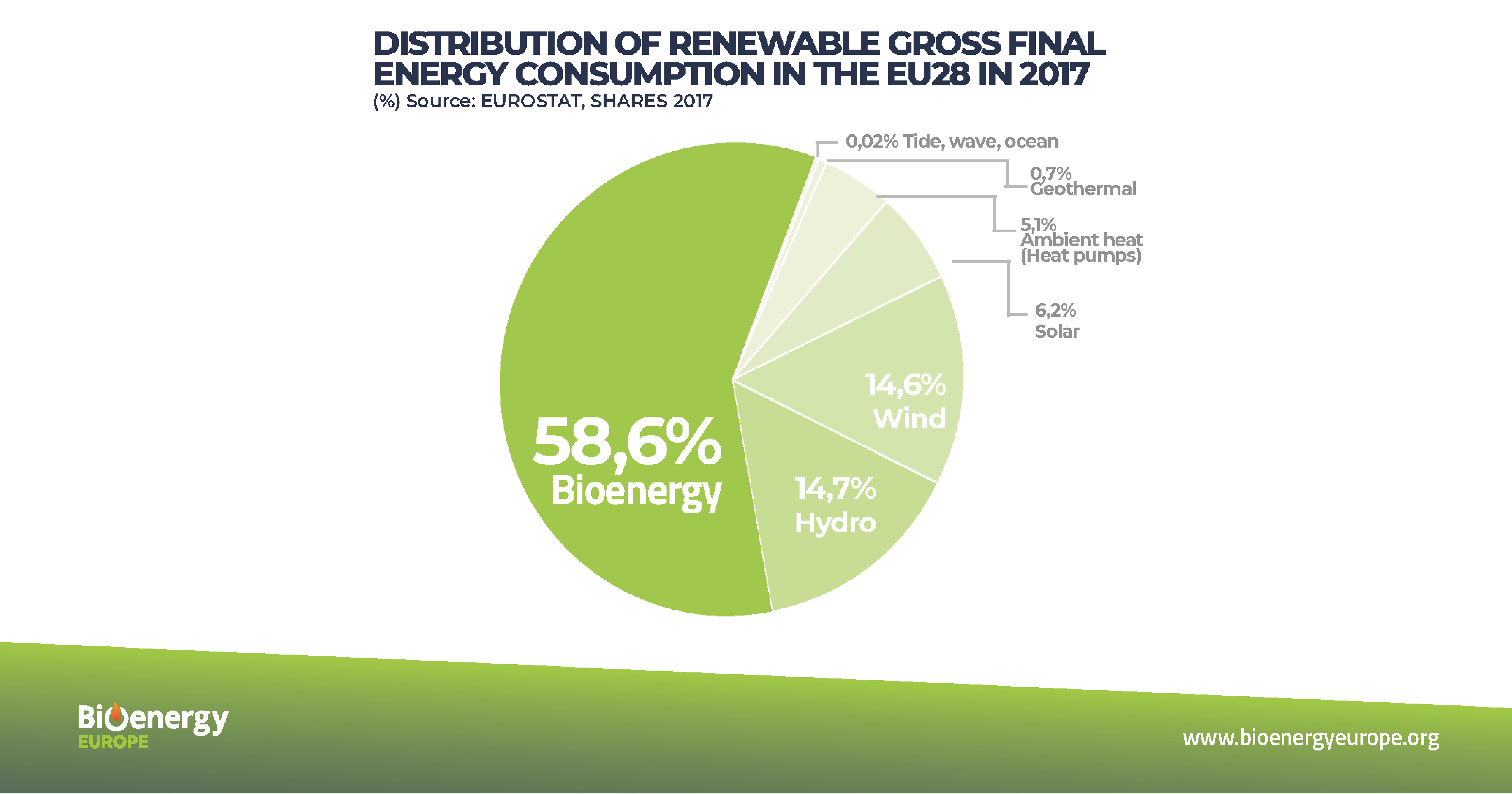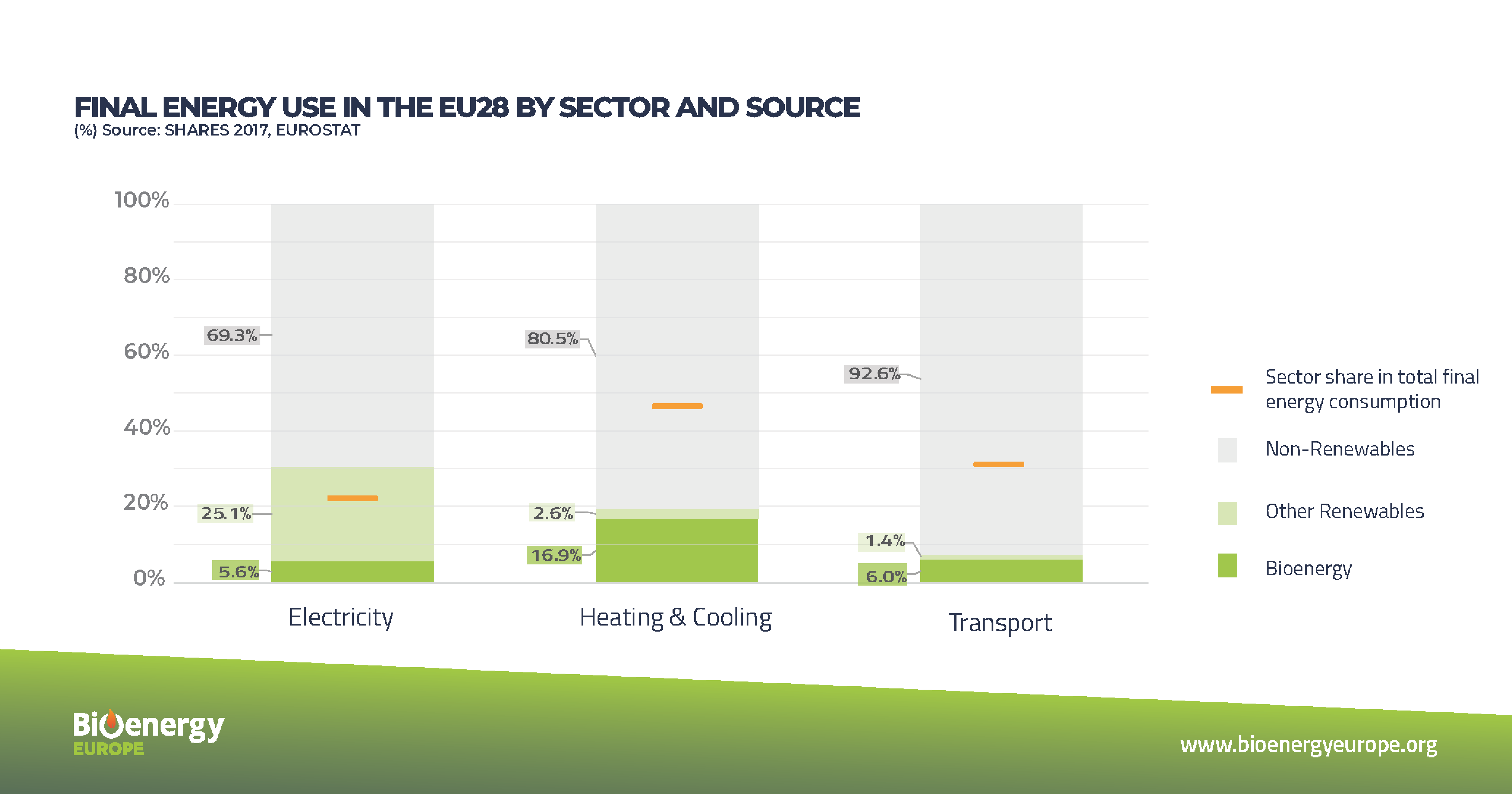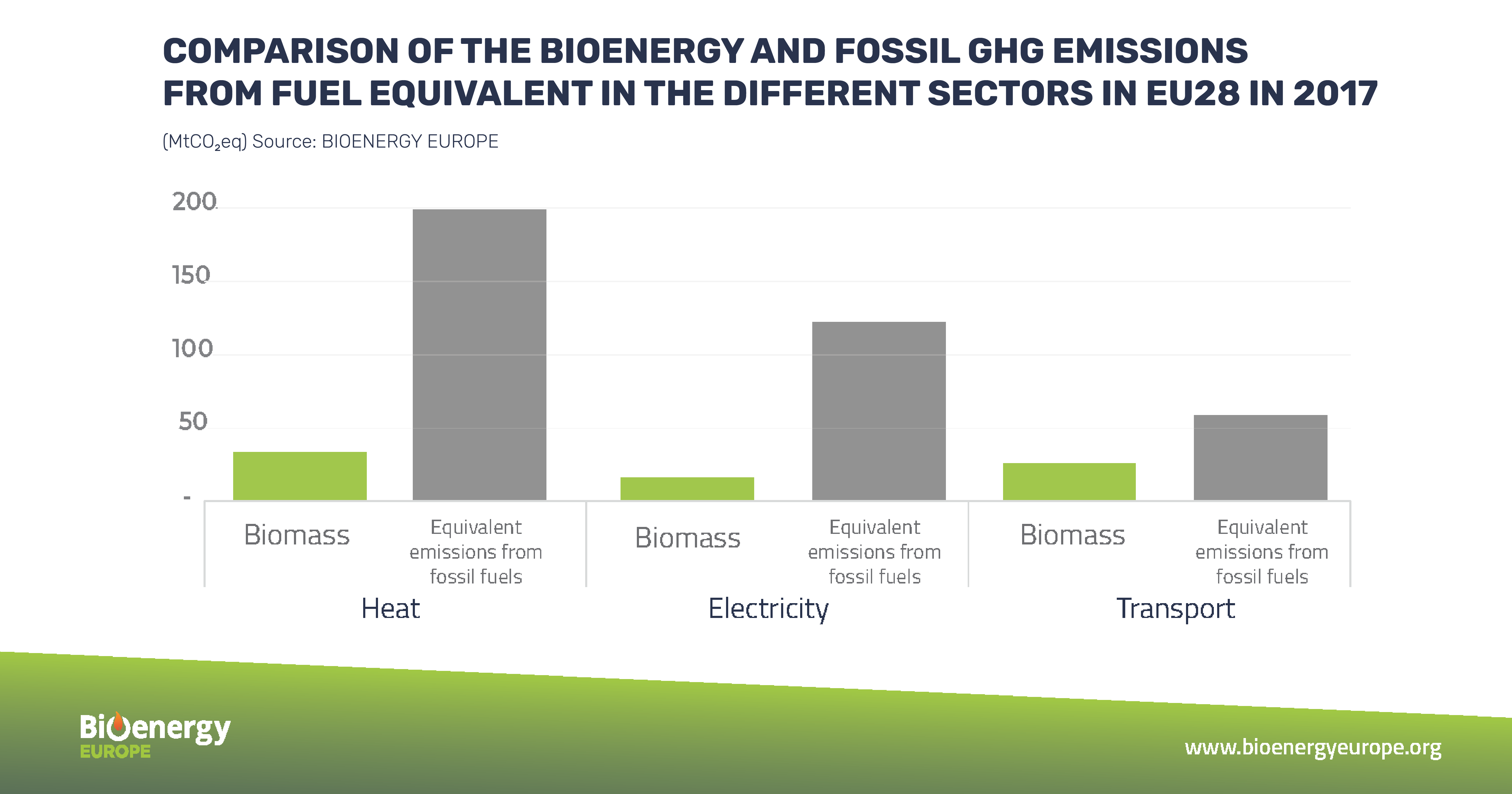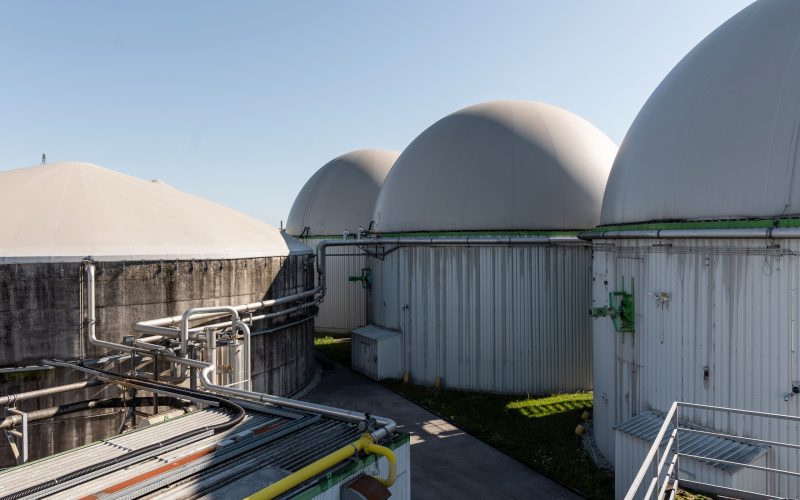Bioenergy is the main renewable energy in Europe
Despite the European Union’s ambitious plans to achieve climate neutrality in 2050, the European economy and energy system are still dependent on imported fossil fuels. That is why the development of RES is a priority.
Bioenergy accounts for almost 60% of the EU total renewable energy consumption
Bioenergy Europe
Biomass used for energy is mostly locally produced (less than 5% imports), therefore replacing fossil fuels with bioenergy also improves EU’s energy security.

If the EU is willing to reach climate neutrality in 2050, more efforts are needed to deploy further renewable energies, especially in the heating and transport sectors.

Bioenergy is the largest renewable energy source in terms of direct and indirect employment, accounting for more than 700.000 jobs in solid biomass, biofuels, biogas, and renewable municipal waste sectors.
Bioenergy is also an enabler of other sectors decarbonisation such as commercial and industrial energy consumption.

Bioenergy Europe key messages
- Bioenergy is today the main renewable energy in the EU, accounting for about 60% of the European final renewable energy consumption. It is also the only fuel that has mandatory sustainability requirements by law, making it a truly sustainable solution for a decarbonized 2050 energy system.
- Decarbonization of the H&C sector is lagging behind. It should become a priority for EU, national and local authorities that should start with phasing out subsidies to fossil fuels and introducing carbon pricing to foster a switch to renewables.
- A European industrial strategy should recognize the decarbonization potential of bioenergy as well as its potential for economic growth and job creation.
- Bioenergy allowed to save around 7% of the EU28 GHG emissions in 2017, making it a secure ally to reduce global emissions by 2050.
Source: Report “Bioenergy Europe Statistical report 2019: Bioenergy Landscape” from Bioenergy Europe (2019).
Bioenergy Association of Ukraine is a full member of the Bioenergy Europe.


